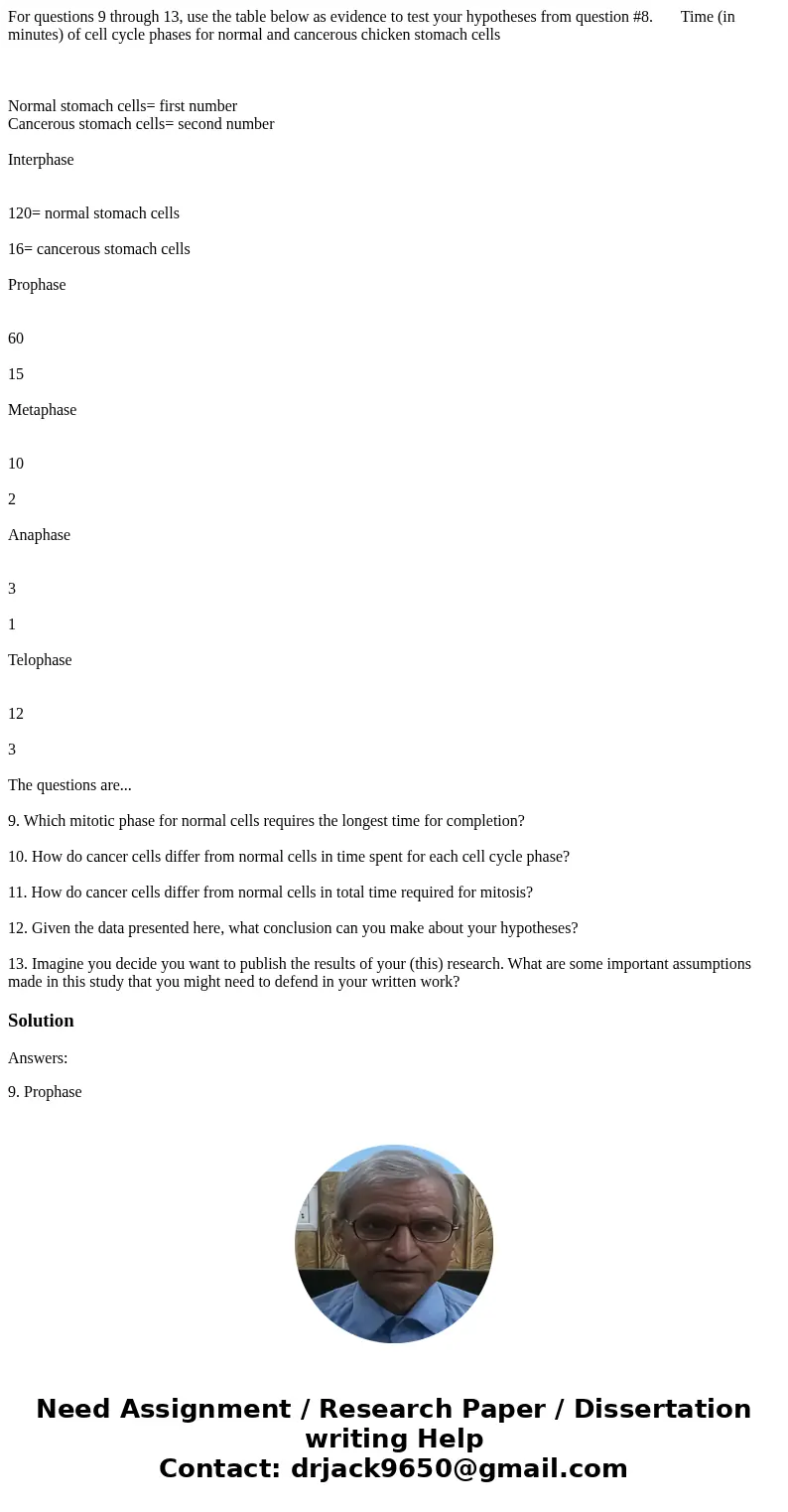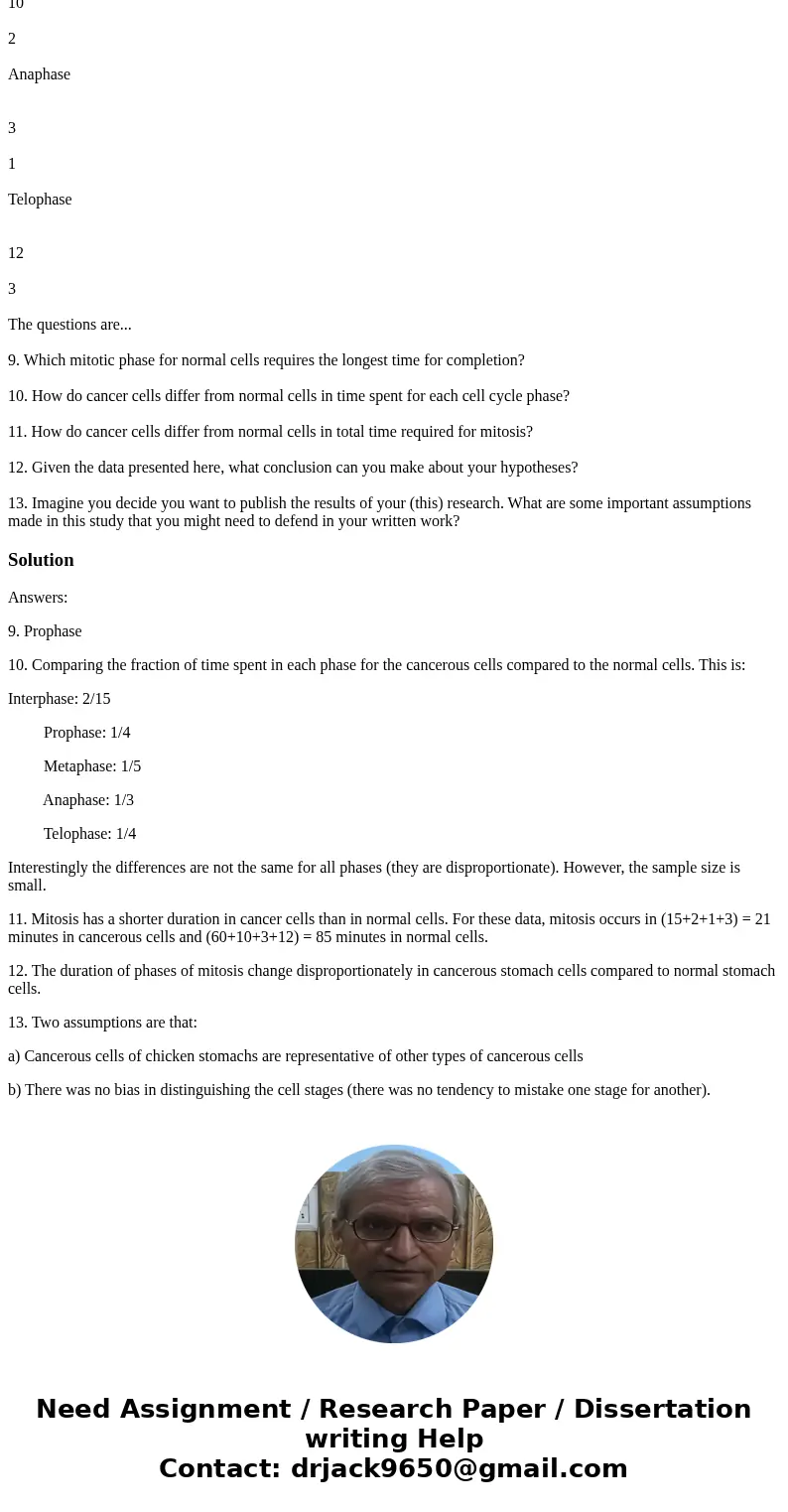For questions 9 through 13 use the table below as evidence t
For questions 9 through 13, use the table below as evidence to test your hypotheses from question #8. Time (in minutes) of cell cycle phases for normal and cancerous chicken stomach cells
Normal stomach cells= first number
Cancerous stomach cells= second number
Interphase
120= normal stomach cells
16= cancerous stomach cells
Prophase
60
15
Metaphase
10
2
Anaphase
3
1
Telophase
12
3
The questions are...
9. Which mitotic phase for normal cells requires the longest time for completion?
10. How do cancer cells differ from normal cells in time spent for each cell cycle phase?
11. How do cancer cells differ from normal cells in total time required for mitosis?
12. Given the data presented here, what conclusion can you make about your hypotheses?
13. Imagine you decide you want to publish the results of your (this) research. What are some important assumptions made in this study that you might need to defend in your written work?
Solution
Answers:
9. Prophase
10. Comparing the fraction of time spent in each phase for the cancerous cells compared to the normal cells. This is:
Interphase: 2/15
Prophase: 1/4
Metaphase: 1/5
Anaphase: 1/3
Telophase: 1/4
Interestingly the differences are not the same for all phases (they are disproportionate). However, the sample size is small.
11. Mitosis has a shorter duration in cancer cells than in normal cells. For these data, mitosis occurs in (15+2+1+3) = 21 minutes in cancerous cells and (60+10+3+12) = 85 minutes in normal cells.
12. The duration of phases of mitosis change disproportionately in cancerous stomach cells compared to normal stomach cells.
13. Two assumptions are that:
a) Cancerous cells of chicken stomachs are representative of other types of cancerous cells
b) There was no bias in distinguishing the cell stages (there was no tendency to mistake one stage for another).


 Homework Sourse
Homework Sourse